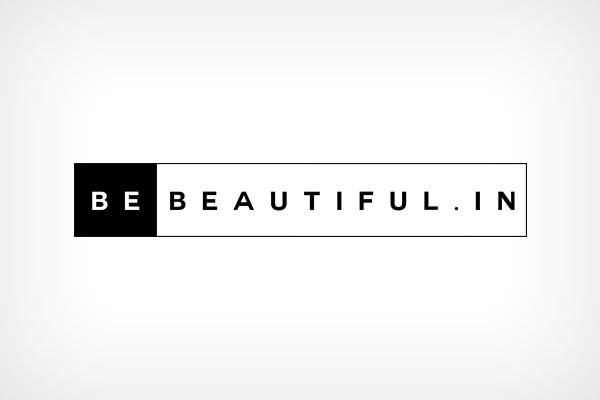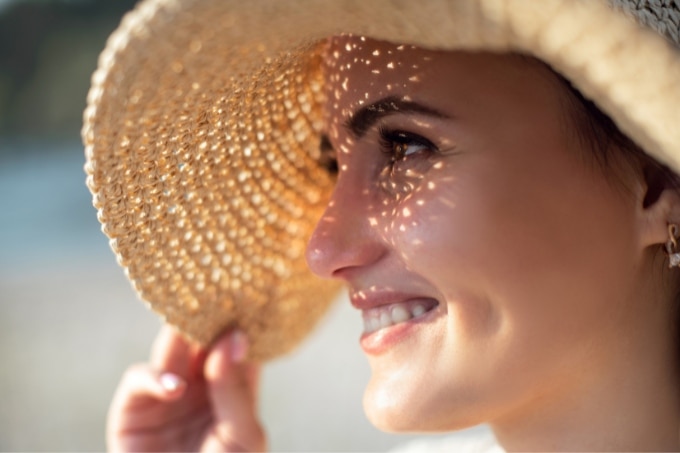If you are anything of a beauty enthusiast, then you definitely will be aware of the popularity retinol has gained in the last few years. Made popular for the incredible anti-ageing benefits it offers, retinol is one skincare ingredient that should be on every girl’s beauty shelf for sure.
As if its anti-ageing benefits weren’t stellar enough, we also recently discovered that retinol is an excellent ingredient to treat stubborn adult acne. And if you’ve tried everything from salicylic acid to tea tree oil to treat your acne, but to no avail, then retinol might just be the answer to banish your acne problems once and for all.
To give you a better idea, we got in touch with dermatologist and skincare expert, Dr. Chytra Anand to answer all your questions on how to use retinol for acne, the correct dosage if it is suitable for every skin type and a lot more. Read on for all the deets on this buzzing skincare ingredient to treat the most common, yet annoying of all skin problems, acne and acne scars.
- What is retinol and does it really work for acne?
- The difference between retinol and retinoids
- How to use retinol to treat acne
- Side effects of using retinol
- Can retinol be used for all skin types?
- FAQs about retinol for acne
What is retinol and does it really work for acne?

Let’s accept it – even though we have been hearing about retinol and reading about it everywhere, we are still quite unsure about what exactly retinol is and why it is so popular. But Dr. Anand is here to explain. “Retinol is a common skin care ingredient which is a synthetic vitamin A derivative. Retinol helps treat acne, blackheads and clogged pores by increasing the cell turnover rate. It reduces the stickiness of the skin cells, which clog/stick together over the pores leading to blackheads and acne eventually,” she says. Additionally, the other reason why retinol is particularly beneficial for acne is that it acts a lot faster than other anti-acne products to actively slough away dead skin cells, reduce inflammation, regulate sebum production and lighten redness and acne scars to a great extent.
The difference between retinol and retinoids

This is one thing a lot of us are always unsure about, and we accept that it can be quite confusing. Dr. Anand says, “Scientifically and technically speaking the entire gamut of vitamin A derivatives are called retinoids in which retinol is one type. In standard medical terms we say retinol is over-the-counter and other retinoids like Tretinoin, Isotretinoin, Adapalene are prescription strength. Only Retinyl Palmitate is an over-the-counter retinoid other than retinol. Retinol is the milder form, whereas other retinoids are stronger on the skin. Retinol converts to retinoic acid, an active form inside the skin, hence skin irritation on the surface is limited, unlike in retinoids.”
How to use retinol to treat acne

But the real question when it comes to using retinol for acne is how to use it. Since retinol has the tendency to irritate your skin, it is really important to stick to the correct dosage to get the desired results. You may notice a little redness and irritation at the beginning, but if you follow the steps mentioned below, it will settle down in no time.
Start with a small quantity -
When you are just starting out, it is always best to start small. Therefore, start by taking a pea-sized amount of a retinol product and spread it all over your face. Dr. Anand says, “Retinol increases the cell turnover rate, removes the dead skin cell surface, helps unclog pores and keeps the skin surface smooth with long term use. It increases collagen production in the deeper skin layers, helping reduce and control open pores.” Hence, it works best when applied evenly all over your face instead of just as a spot treatment.
Avoid applying too close to your mouth and eyes –
When using a retinol product, it is best to avoid applying it close to your mouth and eyes. This is because the skin in these areas is very thin, which increases the chances of skin irritation and redness.
Go slow –
It is completely understandable to want your pimple to go away fast, but using a lot of retinol or using it everyday won’t benefit you much. In fact, this way, you will only end up irritating your skin.
Moisturise regularly –
Retinol aims at preventing acne by regulating sebum production, hence it can dry out your skin quite a bit. A great way to prevent as well as treat this problem is to use a lightweight, non-comedogenic, gel-based moisturiser at least twice a day.
Don’t forget sunscreen –
Retinol tends to increase your skin’s sensitivity, especially to UV rays, making it more susceptible to sun damage. Therefore, it is extremely important to wear a sunscreen of SPF 30, at the very least, to prevent further irritation and damage.
Side effects of using retinol

Dr. Anand says, “Retinol is the milder and relatively less irritating form when compared to other retinoids. The skin has to be slowly eased into using retinol. Ideally, start with the retinol product on alternate days, leaving it overnight and as the skin gets used to it, start applying it daily. The common side effects are irritation, dryness, redness of the skin, over exfoliated/sunburnt appearance and photosensitivity. Some tips to start using retinol if you are a beginner are –
- Start with low strength and slowly build up the strength to ease the skin into a routine
- The ideal is to start with 0.05% and work up to 0.1% retinol
- Always use a moisturiser after your retinol
- Avoid harsh chemical peels and lasers while using retinol.”
Can retinol be used for all skin types?

“Retinol is not necessarily for everybody. If you have oily or acne-prone skin, start using it in your early 20s. Use a prescription-strength product upon a doctor's recommendation in your teen years to combat the acne. Typically, we always say that anybody over the age of 25 should have retinol in their skincare routine to keep the skin healthy and delay the signs of ageing. Start using it two to three times a week until your skin gets used to it and does not cause itching or irritation. After this, it can be introduced daily as well. One word of caution is you must always use sunscreen in the daytime and add a moisturiser at night. Additionally, people with sensitive, photosensitive, rosacea-prone or extremely dehydrated skin should avoid using retinol in their skin care unless it is prescribed by a doctor.”
FAQs about retinol for acne

Q. What other skin treatments does retinol help with?
A. Dr. Anand says, “Apart from treating acne, retinol helps in Controlling and reducing the appearance of open pores due to collagen synthesis Reducing pigmentation, freckles, blotchy skin and surface irregularities of the skin due to its exfoliating properties Anti-ageing care against fine lines as it stimulates collagen and elastin production in the deeper skin layers.”
Q. How long does it take for retinol to work on acne?
A. As much as you’d like to think that using retinol will give you immediate results, you'd be surprised to know that retinol actually takes time. This is why you need to be patient when using retinol. It would take about two weeks for the existing pimples to appear smaller and less inflamed. But for your acne to completely disappear, it can take nearly four to six months.
Q. Should I use retinol every night?
A. When you are just starting to include retinol in your skincare routine, it is best to take it slow and apply no more than a pea-sized amount once or twice a week. This allows your skin some time to get used to the intense exfoliation that retinol puts it through. Once your skin starts adjusting to this, you can increase the dosage as well as the number of times a week you use it. But be very gradual while doing so. Also, ensure that you always apply retinol at night as doing so in the morning could lead to photodamage.
















 Privacy Notice
Privacy Notice
Written by Urvi Dalal on 15th Jan 2021
Writer, avid reader and hardcore beauty enthusiast is the best way to describe Urvi Dalal. With over 5 years of writing experience in the beauty industry, you can trust her to have the latest skin, hair and makeup tidbits on her fingertips. In her time working as a beauty writer, she has had the opportunity to interact and work closely with a string of dermatologists, makeup artists and hairstylists. All that knowledge exchange, coupled with her flair and love for writing make it possible for her to bring you some authentic yet fun beauty content. When Urvi isn’t working, you’d usually catch her curled up with a big, fat book, drinking a cup of tea or practising her makeup skills; there is no in-between!